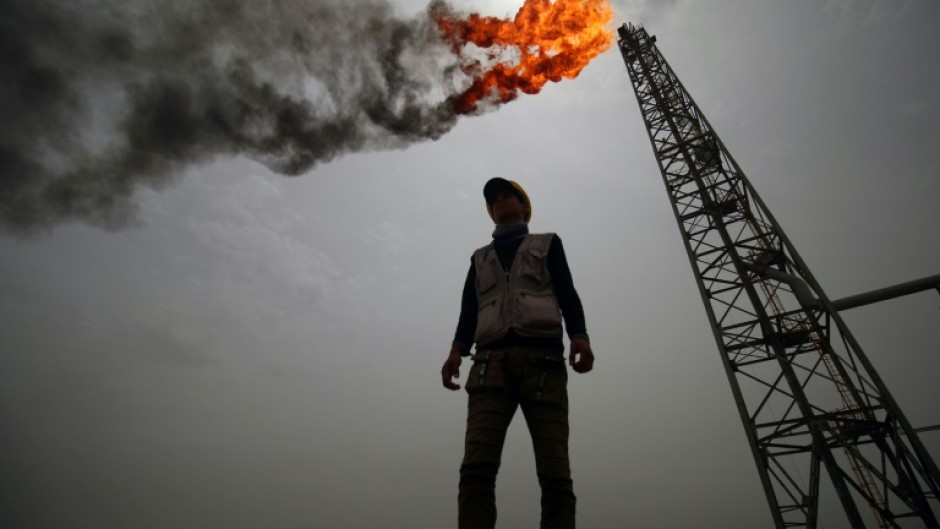
BAGHDAD - Oil-dependent Iraq has been warned its economy risks going into "intensive care" unless it diversifies in line with worldwide efforts to tackle the impact of fossil fuels on the climate.
The country's vast oil reserves are enough to produce crude at current rates for another century, but as the world works to wean itself off hydrocarbons, Baghdad has been slow to adapt.
Sales of the commodity make up 90 percent of Iraq's budget revenue as it recovers from years of devastating conflicts and political upheaval, leaving it overly reliant on the sector.
"Currently, the whole economy depends on oil and the price of oil," political scientist Ammar al-Azzawi said.
"If oil plunges, our economy will go to intensive care."
His suggested remedy is to develop Iraq's industrial, agriculture and tourism sectors before the world shifts to alternative energy sources.
In March, the European Union said that by 2035 it would stop selling combustion engines in new cars, which will no longer be able to emit any CO2.
A global "energy transition is taking place, but not yet at the speed and scale that scientists and experts tell us is necessary to avert the worst impacts of climate change", said Ali al-Saffar, climate director at the New York-based Rockefeller Foundation.

- 'Seize the moment' -
Suffering from prolonged droughts punctuated by frequent sandstorms, Iraq's 42 million people are already witnessing those consequences.
The largely arid country is considered by the United Nations as one of the five most affected in the world by certain impacts of climate change.
In 2020, during the coronavirus pandemic, Iraq saw the downside of its oil dependence when global demand for crude plunged.
"Iraq's export revenues fell precipitously and poverty rates doubled in the country almost overnight," said Saffar.
Ravaged by decades of conflict and home to crumbling infrastructure, Iraq needs oil income to fund reconstruction.
Sixty percent of public investment in 2021 was oil-related, compared with less than 17 percent in 2010, the World Bank said in a March report.
However, "the ease with which oil income is generated and can be redistributed to maintain networks of (political) power weakens" any push for reforms, the global lender said.
It urged Iraq to "seize the current moment of high oil prices" to begin its transition from oil dependence or risk facing more expensive and difficult reforms in future.
Baghdad will "diversify the economy" in the next 10 years, said Muzhar Saleh, economic adviser to Iraq's prime minister.

